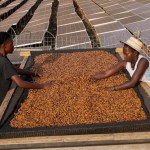(LONDON) – Vladimir Putin’s war economy is far more resilient than Western officials once believed and could sustain the conflict in Ukraine for up to ten years, according to defence analyst Dr Sidharth Kaushal, speaking in an interview published by the Royal United Services Institute (RUSI). However, he warned that Russia is paying an escalating price in social welfare, demographic stability and long-term industrial health.
Kaushal said earlier Western assumptions that sanctions would rapidly cripple Moscow were based on a flawed perception of Russia as a consumer driven market economy similar to those in Europe. In reality, he argued, the Kremlin has now transitioned into a full wartime model, redirecting vast resources away from civilian life and towards military output.
“Most Western countries build small quantities of high-precision equipment with complex supply chains,” he said. “Russia is doing the opposite — mass-producing old-fashioned artillery shells using low-skilled labour and pre-existing stockpiles. That sort of industrial model can be sustained longer than people think.”
Official Russian defence spending has surged from ₽4.6 trillion in 2021 to ₽9.7 trillion in 2023, and is projected to reach ₽14 trillion next year — roughly $50 billion, $105 billion and $150 billion respectively at current exchange rates. Nearly half of total state expenditure is now directed towards the armed forces and internal security.
Kaushal cautioned that “even autocracies face limits” when civilian living standards decline too far. Labour shortages have become so severe that women and pensioners are reportedly being dismissed from some factories to free up men for military service. Other sectors such as construction and manufacturing are being stripped of workers and materials to feed defence requirements. Russia is also suffering excess mortality among working-age men, a demographic shock that could undermine productivity and tax revenue in the coming decade.
He described Russia’s current situation as “stable but fragile” — manageable now, but storing up problems for the future. “Russia can keep resequencing its existing economy for eight to ten years,” he said. “But after that point the cracks will become harder to paper over.”
Beyond economics, Kaushal warned that Russia is restructuring its armed forces for a potential second conflict — not just against Ukraine, but potentially NATO. New military formations have been established in Crimea, Karelia and the Western regions bordering Finland and Poland. “The geography of these forces suggests one group is aimed at Ukraine and the other is designed to interdict NATO reinforcement routes,” he said. “They are already thinking about how to stop British or Scandinavian tanks crossing their borders.”
Asked whether Western support for Kyiv could eventually overwhelm Russian capacity, Kaushal said the answer depended less on sanctions or forecasts and more on sustained industrial commitment. “Russia’s strength is mass. The West’s strength is quality. But if we stop building shells while they keep building theirs, quality won’t save us,” he warned. He criticised “wishful thinking” among some Western commentators who insist Russia will collapse without Western intervention. “Wars are not won by hoping your opponent falls over,” he said. “They are won by outproducing him.”
Kaushal also addressed the political uncertainty posed by the possible return of Donald Trump to the US presidency. Even if Congress blocked any attempt by Trump to cut support for Ukraine, the perception of American withdrawal could embolden the Kremlin, he said. “Putin already thinks Biden is weak. If Trump arrives promising negotiations, Russia will go for broke and escalate its demands.”
While some analysts have speculated that Russia could face internal rebellion or civil war, Kaushal said this was unlikely. “There is no alternative centre of gravity in Russian politics,” he said. “Figures like Prigozhin were only tolerated because Putin allowed them to exist. Once he removed them, they disappeared.” However, he did not rule out the possibility of elite infighting or a palace-style coup if battlefield losses mounted.
Ultimately, Kaushal said Putin views the conflict not merely as a territorial dispute but as an existential struggle against Western liberalism itself. “From his perspective, this isn’t about Ukraine,” he said. “It’s about defending Russian civilisation against what he sees as corrupt Western ideology.”
The result, Kaushal suggested, is a war that cannot be ended through economic coercion or moral appeals. Only consistent Western output and strategic endurance — rather than predictions of imminent collapse — will determine the outcome.

















































